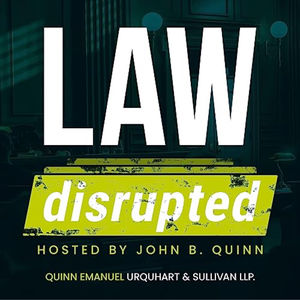In this episode of Law, disrupted, John is joined by the Mayor of New York City, Eric Adams, as well as the Mayor of Miami and Counsel to Quinn Emanuel, Francis Suarez. Together, they discuss legal issues in crypto-currencies, low-income housing, and homelessness. The conversation begins with Mayor Suarez touching on the legal issues related to receiving compensation in crypto rather than legal tender, and discussing the use of applications that have the option to automatically or periodically convert money into crypto. Mayor Suarez also explains how SEC oversight requires that public officials avoid advocating for the use of crypto in any way, shape, or form. Mayor Adams provides the perspective of New York City, which states that people cannot be compensated directly in crypto, but allows them to convert to crypto after receiving the actual paycheck. He adds that his goal is to get to the point where city employees can be paid directly in crypto. John and both mayors then discuss the legal offices that serve their respective cities, including the size of the offices, the complexity of the issues they face, and their use of outside counsel. They then focus on the challenging legal issues involved in creating low-income housing. Mayor Adams notes that zoning changes and location are the biggest challenges faced by the department for housing and other government departments, with many people not wanting new developments in their community. He observes that all of these issues must be navigated in the context of New York’s Uniform Land Use process. Mayor Suarez talks about a housing boom in Miami, which comes with its own legal issues, such as increased rental prices and Community Benefits Agreements, which allow developers to increase their zoning if they give back to the community. This raises constitutional issues involving property rights if the government tells a developer that the only way they can get more favorable zoning is if they make more of the building income accessible. The discussion then turns to the issue of rent control, which is prohibited in Florida, but long-established in New York. The two mayors discuss the pros and cons of rent control as a policy matter and the procedures New York City has in place to help it run properly. Finally, the episode turns to legal issues surrounding homelessness. Mayor Adams begins the conversation by touching on the fact that homelessness has unfortunately been a problem that New York City has faced for many years, which has only worsened due to COVID-19. Together, they chew over the legal process surrounding improving conditions for the homeless, with Mayor Adams highlighting the issue of how much say those homeless people who suffer from serious mental illnesses should have in determining where they live. He notes that there is a vocal minority who believe that the government should have no input in these decisions. Mayor Suarez then talks about the Miami city perspective where the local government was sued by the ACLU in the Pottinger case with the result that the police cannot arrest a person for being homeless. Mayor Suarez details how Miami is trying to adjust to the Pottinger decision through a new homelessness policy, which created a decentralized set of homeless assistance centers where people could be housed, receive drug and mental health treatment, and receive vocational training to be reintegrated into society. Mayor Suarez goes on to explain how this policy resulted in the federal court lifting the injunction that had been in place as a result of the Pottinger case.
Podcast Link: Law-disrupted.fm
Host: John B. Quinn
Producer: Alexis Hyde
Music and Editing by: Alexander Rossi

Legal Issues Facing Big Cities
32分钟 · 331·
331· 0
0
 331
331 0
0
